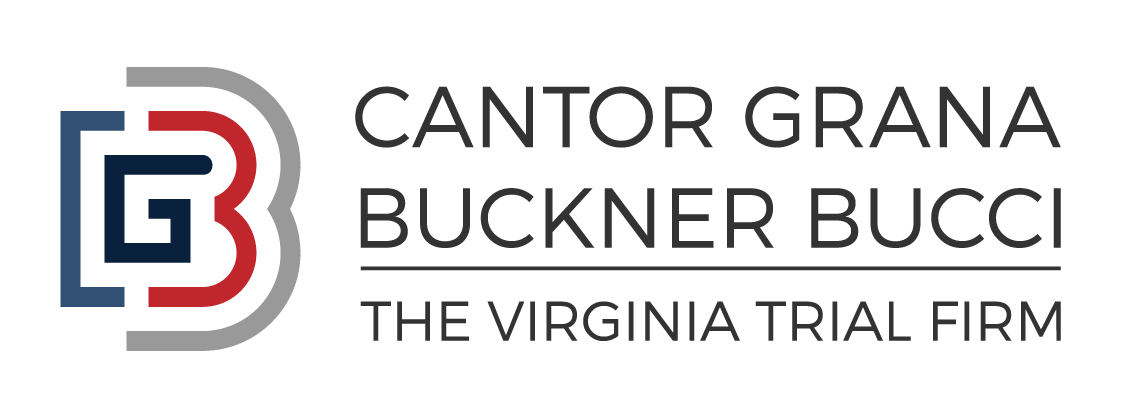What Are the Virginia Car Insurance Laws?
In Virginia, car insurance is a critical safeguard against financial loss and liability in the event of an accident. Whether covering bodily injury, property damage, or protecting against uninsured motorists, having adequate coverage ensures peace of mind and compliance with state laws. Without proper car insurance, drivers risk severe penalties, including fines and license suspensions, as well as exposure to significant out-of-pocket expenses.
At Cantor Grana Buckner Bucci, we understand the complexities of car insurance laws in Virginia and are here to help motorists protect their rights. Our experienced car accident lawyers are dedicated to supporting drivers who face challenges after an accident, ensuring they receive the compensation they deserve. By offering personalized legal guidance and a results-driven approach, we help clients navigate their cases with confidence and achieve the outcomes they need. Reach out to us today to see how we can assist you.
What Are the Required Types of Car Insurance in Virginia?
Driving in Virginia comes with specific legal responsibilities, including carrying appropriate car insurance. Adhering to these requirements ensures drivers are financially prepared for accidents, protects victims, and helps maintain safe roads statewide. Below, we outline the required types of car insurance in Virginia and how they help protect everyone on the road.
Liability Insurance
Liability insurance is mandatory for all Virginia drivers and covers injuries or property damage caused to others in an accident where an insured driver is at fault. Minimum liability coverage limits are set by Virginia law.
Uninsured & Underinsured Motorist Coverage
Virginia also mandates uninsured and underinsured motorist coverage, which protects drivers if they are involved in an accident with someone who has little or no insurance. This coverage ensures that victims can still receive compensation for injuries or damages, regardless of the other party’s insurance status. Minimum uninsured and underinsured motorist coverage limits are also set by Virginia law.
Why These Requirements Matter
These insurance requirements promote accountability, reduce out-of-pocket expenses for victims, and uphold a safety net for all drivers on the road. By maintaining compliance with state laws, drivers not only avoid penalties but also contribute to a more secure driving environment.
What Are the New Minimum Auto Insurance Coverage Limits in Virginia?
Virginia’s minimum insurance coverage requirements increased on January 1, 2025. This update ensures stronger financial protection for drivers involved in accidents, aligning with the state’s commitment to road safety and accountability. Below are the updated minimum coverage limits for auto insurance in Virginia, effective January 2025:
- Liability Coverage: $50,000 per person per accident (up from $30,000), $100,000 total per accident (up from $60,000).
- Uninsured/ Underinsured Motorist Coverage: $50,000 per person per accident (up from $30,000), $100,000 total per accident (up from $60,000).
- Property Damage Liability: $25,000 per accident (up from $20,000).
These changes in minimum car insurance requirements reflect Virginia’s efforts to better protect its residents from financial hardships following a collision while ensuring compliance with evolving industry standards.
Keep in mind that these are just the minimum required coverage limits under Virginia law. Drivers can, and should, consider purchasing higher coverage limits for added protection.
What If I Purchased My Car Insurance Before January 1, 2025?
Car insurance policies purchased before January 1, 2025, will remain valid; however, they must meet the new minimum liability coverage requirements at the time of renewal. This means that while your current policy may still be in effect, it will need to align with the updated liability coverage limits when it is time to renew your auto insurance coverage.
To avoid any surprises or potential liability coverage gaps, it is essential to review your policy and consult with the car insurance company to ensure compliance with the new law. Staying proactive will help ensure you are fully protected and in line with Virginia’s updated minimum insurance requirements.
What Other Types of Insurance Should Drivers Consider?
When it comes to protecting yourself and your vehicle, you have many options for auto insurance coverage in addition to the required types listed above. To secure greater peace of mind, drivers should consider adding other types of car insurance to their policy. Below, we explore some of the most valuable options to ensure you’re fully prepared for any situation on the road.
Collision Coverage
Collision coverage pays for damages to your vehicle resulting from a collision with another vehicle or object, regardless of who is at fault. This type of auto insurance is essential for protecting your investment, especially if you rely on your vehicle for daily transportation.
Comprehensive Coverage
Comprehensive coverage takes care of damages to your vehicle caused by non-collision events, such as theft, vandalism, natural disasters, or falling objects. For those looking to protect against unforeseen risks, this coverage is a critical addition.
MedPay
MedPay, short for “medical payments coverage,” is an option that helps pay for medical and funeral expenses resulting from an automobile accident, regardless of who is at fault. Coverage limits vary by policy, typically ranging from a few thousand to tens of thousands of dollars. It can be applied to injuries sustained by the policyholder and their passengers, and in some states, it also extends to the policyholder while walking or riding a bike. MedPay is designed to cover immediate expenses—such as ambulance rides, emergency treatment, X-rays, and even funeral costs—often with no deductible or copayment, making it a practical way to quickly handle medical bills before other health or liability coverage kicks in.
Gap Insurance
If you have a loan or lease on your motor vehicle, gap insurance is an excellent option. It covers the difference between your car’s actual cash value and the amount you owe on the loan. This ensures you won’t face financial strain if your car is totaled or stolen.
By understanding and incorporating these additional auto insurance options into your policy, you can drive with enhanced confidence, knowing you’re prepared for almost any scenario. Contact your insurance company for more information about the different policies offered, including PIP, gap, comprehensive, and collision coverage.
How Are Virginia Car Insurance Laws Enforced?
Virginia car insurance laws are established to ensure the safety and protection of all drivers on the road. These laws are enforced through a combination of strict requirements and monitoring systems designed to hold drivers accountable. Below are the primary ways these minimum coverage limits are implemented:
- Mandatory Insurance Coverage: Virginia requires drivers to carry minimum liability insurance or pay an uninsured motorist fee.
- Verification Systems: State authorities use electronic verification to confirm that registered motor vehicles meet the required insurance standards, making it harder for drivers to bypass the system.
- License and Registration Penalties: Drivers who fail to maintain appropriate car insurance coverage may face suspension of their driver’s license and vehicle registration by the Virginia Department of Motor Vehicles, ensuring compliance with state laws.
- Violation Fines and Reinstatement Fees: Non-compliance with car insurance requirements can result in hefty fines and reinstatement fees, discouraging violations.
- Accident Accountability: Law enforcement officers verify financial responsibility insurance certificates or proof of insurance during traffic stops and after accidents, ensuring that all parties involved meet their legal obligations.
What If the Insurance Company Is Not Helping Me After a Virginia Car Accident?
Insurance companies are businesses, and their primary goal is to protect their bottom line. After a car accident, they may attempt to minimize the amount they pay out by downplaying the severity of injuries, disputing fault, or offering lowball settlements that don’t cover the full scope of damages. They might also delay the claims process, hoping you’ll accept a reduced offer out of frustration. This approach can leave victims feeling overwhelmed and undercompensated during an already difficult time.
At Cantor Grana Buckner Bucci, we don’t stand for unfair tactics. Our team of experienced attorneys knows how to hold insurance companies accountable and fight for the compensation you deserve. From negotiating with adjusters to building a strong case for litigation, we relentlessly pursue maximum results so you can focus on your recovery. Put our proven legal expertise to work for you—schedule a free consultation today and take the first step toward justice.










